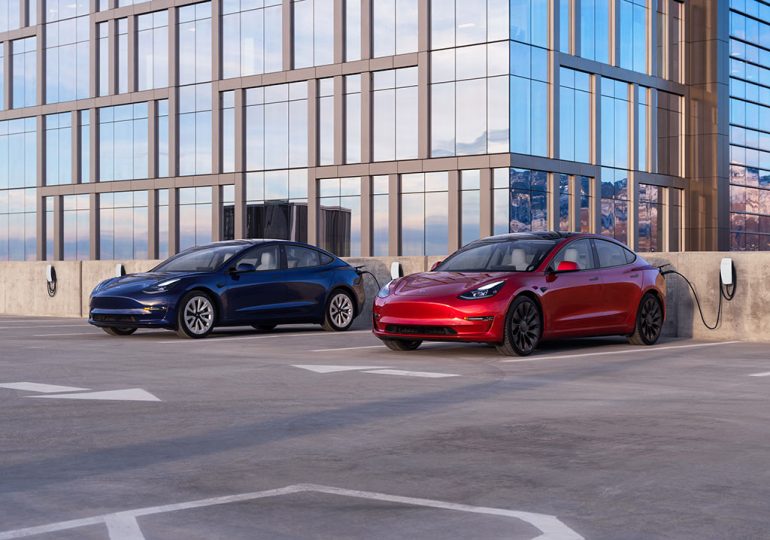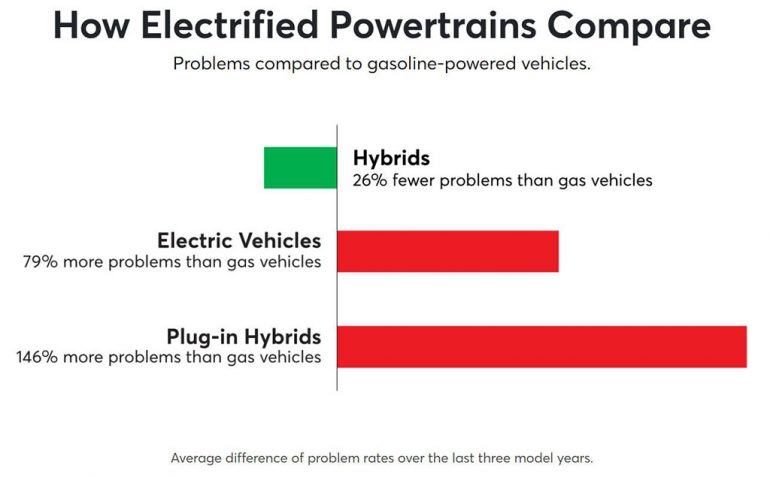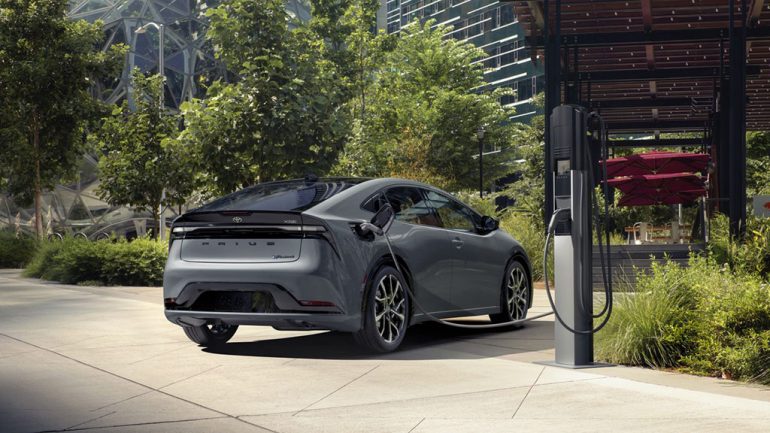
Consumer Reports’ latest survey reveals that electric vehicles (EVs) have demonstrated a lower level of reliability compared to traditional gasoline-powered cars, trucks, and SUVs. Covering the model years from 2021 to 2023, the survey found that EVs encountered nearly 80% more issues on average than vehicles propelled by internal combustion engines.
The primary concerns reported by EV owners centered around problems with battery and charging systems, along with issues related to the fitment of body panels and interior parts. According to Consumer Reports, these challenges stem from the fact that manufacturers are still adapting to the construction of entirely new power systems. Jake Fisher, Senior Director of Auto Testing at Consumer Reports, described this as a phase of “growing pains” and emphasized the ongoing process of working out the bugs in new technology.
Also, don’t forget that you can get discounted new car pricing with a free quote through qualified local dealer partners.
Despite the acknowledgment of these issues, the survey suggests that as EV manufacturers refine their technologies, the overall reliability of electric vehicles should improve. However, lingering concerns about reliability are expected to compound existing reservations among potential buyers, including worries about higher costs, inadequate charging infrastructure, and lengthy charging times.
The growth of electric vehicle sales has experienced a notable slowdown since the previous year, with the 12-month growth rate dropping from about 90% in June 2022 to approximately 50% in June of the current year. Automakers are becoming increasingly apprehensive about a further decline in the pace of growth. In response to these challenges, thousands of U.S. auto dealers have petitioned President Joe Biden to reconsider what they view as unrealistic fuel economy and emissions requirements, particularly the goal of achieving 67% of total U.S. vehicle sales as electric by 2032.

Image Credit: Consumer Reports
The Consumer Reports survey also indicated that plug-in hybrids, which combine battery power with a gas-electric powertrain, faced more reliability issues than fully electric vehicles. Fisher highlighted the complexity of plug-ins, with two separate power systems, as a potential source of glitches. Notably, brands with a history of lower reliability, such as Jeep and Volvo, have started mass-producing plug-in hybrids.
However, Fisher noted that traditional integrated gas-electric hybrid systems have proven more reliable than gasoline vehicles, as they have been in use for approximately 25 years, allowing manufacturers to work out most of the initial challenges.

The survey data, derived from subscribers who owned EVs from the model years 2021 to 2023, revealed that EVs from the earlier model years had more than twice the problem rates of internal combustion vehicles. The gap narrowed in the 2023 model year, suggesting an improvement in the overall reliability of EVs. Nevertheless, Fisher cautioned that newer vehicles tend to have lower problem rates initially, which may increase as they age.
While the survey highlighted challenges in the EV landscape, it also noted improvements in the reliability of electric vehicles from Tesla, the market leader. Tesla’s ranking in the 2023 survey improved to 14th out of 30 automotive brands, up from 19th in 2022. This improvement was attributed to Tesla’s focus on simpler, less-expensive models like the Model Y SUV and Model 3 cars.
The survey’s top five most reliable brands were Lexus, Toyota, Mini, Acura, and Honda, while the lowest-ranking brands included Jeep, Volkswagen, Rivian, Mercedes-Benz, and Chrysler. Despite the challenges, the survey indicates an ongoing evolution in the electric vehicle market and a potential path toward increased reliability in the future.